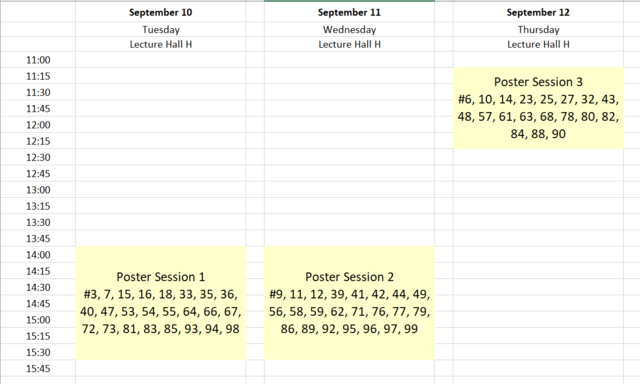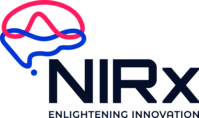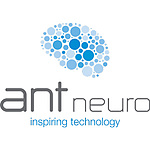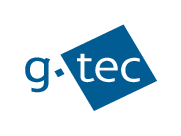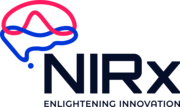Scientific Program
- Conference Schedule
- Keynote Speakers
Keynote speakers
We are very proud to present you the confirmed keynote speakers of the GBCIC2024.
In random order:
Andrea Kübler (University of Würzburg)
"Hans Berger Lecture: unleashing the brain's secret - really?"
Jennifer Collinger (University of Pittsburgh)
"Sensorimotor brain-computer interfaces for arm and hand function"
Camille Jeunet Kelway (Université de Bordeaux)
"BCI-based neurofeedback training procedures to restore or improve motor skills:
a user-centred approach"
Henri Lorach (Université de Lausanne)
"Brain-controlled spinal cord stimulation to restore voluntary movements after spinal cord injury"
Nick Ramsey (UMC Utrecht)
"Implantable BCI systems for use in real-life: exciting expectations versus a road paved with potholes"
Andrea Kübler
"Hans Berger Lecture: unleashing the brain's secret - really?"
ABSTRACT: In 1929 Hans Berger published his revolutionary paper about the "Elektrenkephalogramm des Menschen". For the first time the electrical activity of the brain's nerve cells was made visible at the surface of the scalp.Many more seminal discoveries followed, for example EEG activity changes during sleep, the link between abnormal activity and diseases such as epilepsy or depression, and the possibility to voluntarily change such activity via neurofeedback followed by the development of brain-computer interfaces for different interventions.During the decades it became clear that the electrical activity of the brain in different frequency bands and related topography is linked to different states of consciousness. By now we can easily distinguish coma from REM sleep from mind wandering from wakefulness. But do we really know how the brain realizes the sense of self and how this may be linked to successful BCI operation?
BIO: Prof. Kübler, PhD, Biologist and Psychologist, is Associate Professor at the University of Würzburg, Institute of Psychology, and her major research topics within the field of BCI are psychological aspects and neuroscientific basis of BCI control and studies with patients in the field. She is working on using neurofeedback for communication,rehabilitation and therapy, i.e.,for replacing and improving lost or impaired function. Currently she is investigating how humans learn to control BCI with tactually evoked potentials as input signal and how markers of consciousness are linked to BCI control. Besides being an expert in the clinical application of BCI she is a certified trainer of mindfulness-based stress reduction and mindfulness-based pain management. She is investigating different aspects of the mindfulness concept from basic questions on how to define mindfulness to mindfulness-based interventions in chronic disease, such as COPD and Fibromyalgia. In 2023 she was ranked by ResearchGate 37/100 best female scientists in Germany and 904/1000 worlwide.
Jennifer Collinger

"Sensorimotor brain-computer interfaces for arm and hand function"
ABSTRACT: Brain-computer interfaces (BCIs) allow us to interpret information about movement intention from the brain to control devices such as computers or robotic arms. They can also convey tactile sensory information using microsimulation of somatosensory cortex. In this talk, I will discuss the progress that we have made to restoring arm and hand function using a bidirectional BCI in terms of both motor control and restoration of somatosensory feedback as part of a multi-site clinical trial. Biologically-informed BCI approaches show great promise towards restoring sensorimotor function.
BIO: Dr. Jennifer Collinger is an Associate Professor at the Department of Physical Medicine and Rehabilitation at the University of Pittsburgh, Rehab Neural Engineering Labs, with secondary appointments at the Department of Bioengineering at the University of Pittsburgh and the Department of Biomedical Engineering at Carnegie Mellon University. She is the Past-President of the International Brain-Computer Interface Society. Her research interests are related to the use of neuroprosthetics to restore function for individuals with upper limb paralysis or loss.
Camille Jeunet-Kelway
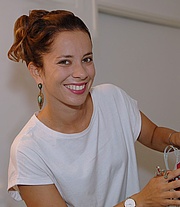
"BCI-based neurofeedback training procedures to restore or improve motor skills: a user-centred approach"
ABSTRACT: Beyond the control of diverse applications, EEG-based BCIs can be used to improve or restore skills through neurofeedback training (NFT) procedures. NFT procedures consist in identifying neuromarkers that underlie target abilities (e.g., cognitive or motor skills), and in training one to voluntarily self-regulate those neuromarkers in order to improve the associated skills. During the training, users/patients are fed-back with information regardingthe modulations of their brain activity. This feedback is meant to enable them to optimise their self-regulation strategies and thereby their performance. Thus, a major challenge is to determine how to maximise the relevance of the feedback and by that the NFT efficiency.In this keynote, I will introduce the research we are leading on that topic, especially in the context of NFT procedures targeting sensorimotor rhythms to improve or restore motor skills. I will describe the 3-step user-centred approach that we develop, namely i) basic neuroscience research to identify relevant and reliable neuromarkers, ii) applied research in ergonomics to optimise the feedback and iii) translational research in humanities to maximise acceptability and usability. I will illustrate this approach through 3 domains of application: motor rehabilitation after stroke, the reduction of motor symptoms in Parkinson's disease and the improvement of athletic performance.
BIO: Camille Jeunet-Kelway received her PhD in cognitive sciences in 2016 at the University of Bordeaux, France. After a post-doctoral fellowship in Inria (Rennes, France) and EPFL (Geneva, Switzerland), she was recruited as a tenured CNRS Research Scientist. In 2021, she has joined the institute for cognitive and integrative neurosciences (INCIA) in Bordeaux, where she leads interdisciplinary research on the use of EEG-BCIs to improve or restore cognitive and motor abilities, both for clinical (stroke patients and patients with Parkinson disease) and non-clinical (athletes) populations. She is particularly interested in studying the learning mechanisms underlying neurofeedback training as well as the acceptability of neurofeedback procedures and BCI technologies. Camille Jeunet-Kelway has received 3 PhD awards, the European Label as well as 5 national fundings from the French research agency for her research. In 2022 she was awarded the Early Career Award in neuroscience from the BCI Society. Since 2017, she is a board member of the French BCI association, CORTICO.
Henri Lorach
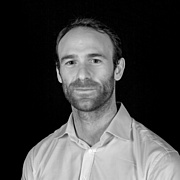
"Brain-controlled spinal cord stimulation to restore voluntary movements after spinal cord injury"
ABSTRACT: A spinal cord injury interrupts the communication between the brain and the muscles, leading to paralysis. We restored this communication with a digital bridge between brain and spinal cord to regain voluntary control over the legs and arms. This brain-spine interface (BSI) consists of fully-implanted recording and stimulation systems that establish a direct link between cortical signals and the modulation of epidural electrical stimulation targeting the lumbar and cervical spinal cord respectively. This digital bridge establishes a framework to restore natural control of movement after paralysis and promote neurological recovery.
BIO: Henri Lorach is Assistant Prof. at University of Lausanne in Brain Computer Interfaces. He is developing invasive strategies to restore voluntary movements after spinal cord injury and stroke using brain-controlled spinal cord stimulation. Prof. Lorach graduated from Ecole Polytechnique in Paris and completed his PhD at the vision institute working on the encoding of visual information in the retina. He completed postdoctoral training at Stanford University to develop retinal implants that stimulate electrically the retina and restore visual perception to the blind.
Nick Ramsey

"Implantable BCI systems for use in real-life: exciting expectations versus a road paved with potholes"
ABSTRACT: For implantable BCI solutions to restore communication and mobility, the divide between what we are made to think is possible and what is actually possible is growing at a steady pace. Scientists, engineers and companies seem to know what end-users need, but who is to know whether they are right? In this lecture I will provide some insights into the world of implantable BCI's, the promises and actual achievements, and the challenges faced by those who aim to see such BCI systems enter the neurological market.
BIO: Nick Ramsey leads the Utrecht Brain-Computer Interface research program of the Brain Center (www.utrecht-bci.nl). He has a degree in Psychology and a PhD in Neuropsychopharmacology from the University of Utrecht. He became a specialist in imaging human brain function at the National Institutes of Health (USA), and applies modern techniques, including fMRI and intracranial EEG, to questions on working memory, language and sensorimotor function. His primary goal is to acquire and translate neuroscientific insights to patients with neurological disorders, with a focus on implantable Brain-Computer Interfaces. His research program currently focuses on the cortical representation of hand gestures and speech, and utilization of this knowledge for fully implantable BCI systems for people with Locked-In Syndrome. Nick Ramsey led the foundation of the international Brain-Computer Interface Society (www.bcisociety.org) and was its president until 2019.

